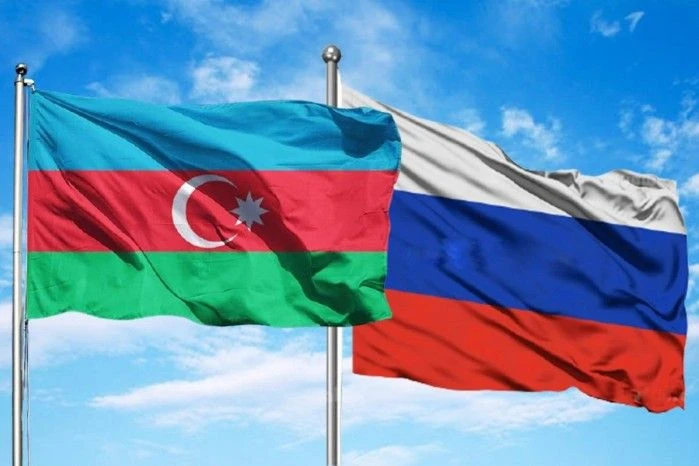The anti-Azerbaijani hysteria erupting across Russian media in the wake of the Shusha Media Forum is not only baffling — it fundamentally undermines Moscow’s claim to be a rational and credible geopolitical actor.
The emotional outbursts from Kremlin-aligned voices like Vladimir Solovyov and a chorus of Z-propagandists stand in sharp contrast to what Azerbaijani President Ilham Aliyev actually said. His remarks were nothing new — a reaffirmation of principles Azerbaijan has consistently upheld since regaining independence: commitment to international law, respect for sovereignty, territorial integrity, and the inviolability of recognized borders.
One might assume Russia would welcome such a stance. Instead, the response has been fury, accusations of betrayal, and even calls to question Azerbaijan’s sovereignty. But the real trigger for this cognitive dissonance in Moscow lies not in Aliyev’s words — but in Azerbaijan’s independent path, which refuses to dance to the tune of Russian imperial nostalgia.
Moscow fully understands that Baku follows its own carefully calibrated agenda — sovereign and pragmatic. And this irritates those still clinging to the old colonial mindset when dealing with post-Soviet nations.
Despite its loud declarations of loyalty to international law, Russia has repeatedly violated it. And when someone dares — even implicitly — to call this out, Moscow bristles.
A telling example of this hypocrisy came during President Vladimir Putin’s June meeting with international media, where he once again attempted to give legal cover to the annexation of Ukrainian territory. Citing the UN Charter and the ICJ’s opinion on Kosovo, Putin claimed breakaway regions don’t need a central government’s permission to declare independence.
This is a dangerous distortion. The ICJ did not rule that Kosovo’s independence was lawful — only that issuing a declaration of independence in itself did not violate international law. It explicitly stated that the Kosovo case was unique and not a universal precedent. Using it to justify Russia’s actions in Donbas is legally and morally dishonest.
Furthermore, the right to self-determination in international law was primarily a tool of decolonization — a means for oppressed peoples to break free from colonial rule. Donbas, by no stretch of the imagination, fits that description. Ukraine is not a colonial power, and framing Donetsk and Luhansk as “liberated colonies” is pure fiction.
And here lies Russia’s biggest contradiction: if it truly believes in self-determination, why did it brutally crush Chechnya’s independence movement? Why does any mention of potential independence for Tatarstan, Bashkortostan, or Dagestan provoke panic in the Kremlin?
If Donbas has the right to secede without Kyiv’s consent, doesn’t that mean Russian republics should have the same right — without Moscow’s blessing?
Imagine Tatarstan declaring independence tomorrow. According to Putin’s logic, Russia should recognize it and offer support. But we know that’s not what would happen. The likely response would be military occupation, arrests, and charges of treason — a stark reminder that Russia’s principles are selectively applied and weaponized to serve its interests.
Putin’s words in June weren’t just legal sleight of hand — they were a form of geopolitical self-harm. Russia wants its neighbors to stay silent while it manipulates international norms. Azerbaijan has chosen not to stay silent. That is the real source of Moscow’s rage.
This is why the truth can no longer be found on Russian state television. It has long since left. But in Shusha — the truth was spoken, and the world heard it.
President Aliyev’s remarks weren’t an attack on Russia. They were a message to the global community: Azerbaijan does not want to live by the law of force. It wants to live by the rule of law. And that idea terrifies those who’ve grown used to rewriting the rules as they go.
Moscow can try to paint Azerbaijan as another “ungrateful ally,” but it knows full well that Baku is setting an example many post-Soviet states aspire to follow — an example of sovereignty, pragmatism, and legal consistency.
Azerbaijan is not a satellite state. It’s a sovereign actor in global affairs. And when it speaks of respecting borders and upholding international law, it delivers a silent verdict on Putin’s entire foreign policy.
That’s why Solovyov and his ilk are seething — not because they were offended, but because they were exposed.
Russia’s own arguments are turning against it. If it insists on validating Donbas’s secession, it will eventually have to answer why the same logic doesn’t apply to regions like Kalmykia, Komi, or Yakutia.
Once you open that Pandora’s box, it doesn’t close.
Putin’s rhetoric isn’t just flawed — it’s geopolitical hara-kiri.
Azerbaijan, meanwhile, is building its foreign policy on solid legal ground — and its voice is growing louder at the UN, in the Turkic Council, and across global media.
Moscow’s anger is not a spontaneous reaction. It’s a symptom of weakness. Azerbaijan’s logic exposes Russia’s contradictions — and that’s why it irritates the Kremlin more and more.
But this irritation won’t disappear. It will become the new normal. And sooner or later, the Kremlin will have to face reality — or keep hiding behind lies.
But history, as always, remembers who stood with the truth.
Azerbaijan simply recognized it earlier.


